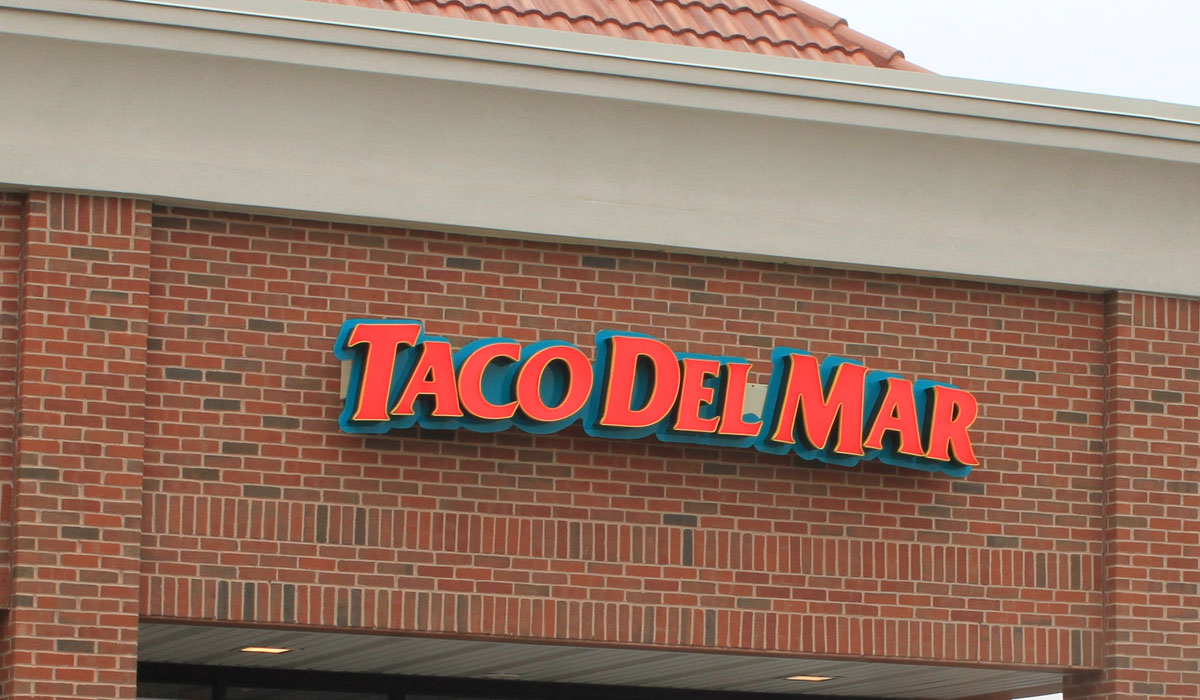On the heels of its June purchase of QCE LLC, the parent company of sandwich chain Quiznos, High Bluff Capital Partners is dealing again. The San Diego-based private investment firm, which specializes in consumer-facing companies and brands with growth and transformational potential, announced Monday (July 9) that it has acquired fast casual Taco Del Mar. Terms of the transaction were not disclosed. There are currently more than 100 locations in the U.S. and Canada.
“We see tremendous opportunity to continue to build out our platform in the mid-market restaurant franchise segment, which has many regionally strong concepts with significant growth potential,” said Gerry Lopez, operating partner at High Bluff Capital, in a release. “Our approach is grounded in identifying brands that enjoy strong relationships with consumers that can benefit from the type of targeted capital, scale, management expertise and focus on innovation we bring to bear.”
Founded by James and John Schmidt and headquartered in Lynwood, Washington, Taco Del Mar debuted in Seattle in 1992 and grew to 70 restaurants by 2002, with most of the units in its home market. However, Taco Del Mar has traversed a rocky franchise history in recent years, not unlike Quiznos.
Taco Del Mar Franchising Corp. sought Chapter 11 protection in January 2010, crediting years of financial loses due to lawsuit expenses, poor expense management, and “poor franchisees and poor sites,” for new restaurants. At the time, The Seattle Times said Taco Del Mar’s debt ranged from $1–$2 million. There were roughly 225 locations in the U.S., Canada, and Guam. It lost $2.8 million between 2006–2008. The largest liability listed in Taco Del Mar’s preliminary filing in U.S. Bankruptcy Court in Seattle was for $500,000. The company had more than $17 million in debt as of November 30, 2009.
The Seattle Times said the brand “embarked on an expansion spree,” signing up master developers who paid for the right to find franchisees and pick new locations. In exchange, the developers received half of the franchisee’s initial fees and ongoing royalties.
Within six years, Taco Del Mar’s footprint boomed to 270 stores and revenue climbed from $950,000 to $5.4 million. Yet expenses dragged profit, including more corporate employees and rising payments to master developers. When it filed for Chapter 11 protection, Taco Del Mar had stopped paying business and occupation taxes to King County since June 2006. It owed back taxes of $95,290 to the county, $81,182 to the Internal Revenue Service, and $105,325 to the Canada Revenue Agency, according to The Seattle Times.
In October 2010, Franchise Brands LLC, founded by Subway co-founders Fred De Luca and Peter Buck in 2005, purchased Taco Del Mar for $3.3 million.
Lopez believes High Bluff can leverage its strengths and grow the chain.
“With a popular Baja lifestyle positioning and well-established heritage in the Pacific Northwest, Taco Del Mar has an excellent foundation to build upon as we look to leverage our platform to enhance support to the franchise base, develop and introduce fresh concepts that resonate with today’s consumers and broaden the brand’s appeal,” Lopez said.
High Bluff announced its purchase of Quiznos, which once numbered 5,000 or so locations, in June. Founded in 1981, Denver-based Quiznos’ retraction since 2007 took it down to about 800 units, with a large swath of those stores in 32 countries outside the U.S. The brand closed more than 100 restaurants in fiscal 2017. The brand emerged from bankruptcy in 2014. Executives agreed to a restructuring plan at the time that would reduce its debt by more than $400 million. The plan involved three of the top figures in the company forming an agreement to trade $445 million in debt for $200 million in new debt plus 70 percent of its shares.
During its retraction, Quiznos had to deal with a bevy of legal issues with franchisees over its purchasing policies and high-food costs. Quiznos had about 1,000 restaurants in 2016.






